Up and down the Kennebec Valley: Music in the Kennebec Valley – Part 4
by Mary Grow
R. B. Hall Band & Cecilia Club
Kennebec County historian Henry Kingsbury provided a minor exception to the general lack of interest in music in local histories when he included a section headed “MUSIC” in his history of Waterville and wrote two whole paragraphs.
The first was about “the earliest instrumental or band music” in town, “produced by Abel Wheeler, a music teacher, and his two sons, Erastus O. and Sumner A., with fifes and drums.” The Wheelers provided music at the first Waterville College commencement on Aug. 21, 1822, Kingsbury said.
Rev. Edwin Carey Whittemore, in his Waterville history, added that between commencements and military exercises, a brass band was “a necessity” for Waterville. That first commencement parade, he wrote, was led by the Waterville Artillery and “a band of music,” “and bands have existed here from that time on.”
Kingsbury wrote that “a few years later,” (your writer has been unable to find a precise date), “the first Waterville Band was formed.” Waterville College officials promised its members $100 a year for playing at commencements.
Kingsbury listed the eight original band members, most of whom he said were from the Ten Lots section of western Waterville that later became part of Fairfield, and four of the Waterville Band’s successive directors over “many years.” Except for Stephen Jewett (violist and fifer Stephen Jewett from Augusta? – see the July 27 and Aug. 10 issues of The Town Line), none of those named is mentioned in George Edwards’ Music and Musicians of Maine, nor is the Waterville Band listed.
Three of the Waterville Band’s original members were Reward Sturtevant, Anson Bates and Asa B. Bates (1794-1878). The last-named is the man in whose honor the Asa Bates Memorial Chapel in southwestern Fairfield is named (see the Aug. 5, 2021, issue of The Town Line).
An on-line genealogy identifies Asa Bates as a musician and a veteran of the War of 1812. Isaac Bangs’ chapter in Whittemore lists him as one of the three musicians in William Pullen’s militia company, which was stationed in Augusta in September 1814.
An organization called the Waterville band appears occasionally in later years in Waterville’s history. The July 1-3, 1879, Waterville Classical Institute commencement included a procession “escorted by the Waterville band.”
In William Mathews’ memoir of growing up in Waterville in Whittemore’s history, Mathews wrote that in the period between 1825 and 1850 Waterville had three “fine military companies:” the Light Infantry; an artillery company that kept two brass cannons in the small Temple Street house that was its headquarters; and the militia. He implied that each company had its own band.
Waterville’s best-known musical organizations in the late 1900s and early 2000s were the R. B. Hall Military Band and Hall’s Orchestra. Both were organized and led by Robert Brown (or Browne) Hall, who was born in Bowdoinham on June 30, 1858, and died in Portland on June 8, 1907.
The on-line Maine An Encyclopedia says Hall was an outstanding cornetist – his father was his first teacher – and bandmaster. He composed 62 marches that were published while he was alive, and according to Frances Turgeon Wiggin’s Maine Composers and Their Music, “at least 100” altogether.
John Philip Sousa played a Hall march at the 1900 Paris Exposition, Maine An Encyclopedia says. The United States Navy Band played his Funeral March at President John F. Kennedy’s funeral procession in 1963, according to a 2019 Central Maine Morning Sentinel story.
Hall’s musical abilities were displayed in many municipalities, including Boston, Massachusetts, and Albany, New York, and in Maine Richmond, where as a 19-year-old he directed the Richmond Cornet Band; Bangor (1883-1890); Portland; Augusta; Cherryfield; and Waterville.
He is credited with reviving the Bangor band. In 1884 residents held a week-long celebration during which they showed their appreciation by giving him a “gold Boston Three Star Ne-Plus cornet,” reportedly now owned by the Waterville Historical Society.
Hall began his work in Waterville in 1890, Whittemore said, organizing the “carefully trained” and well-received band and orchestra. In the 1890s, the band not only played at “school and college commencements,” but was hired by the city for summer concerts in Monument Park. Wiggin added that he brought members of the Boston Symphony to join local musicians at Colby commencements.
Wiggin named two local men associated with Hall. Clinton native Herbert C. Hunter (Dec. 18, 1867 – Dec. 11, 1931) was a violinist and cornetist who studied under Hall. Arthur F. Roundy, of Fairfield (Oct. 12, 1881 – ??), music director at Lawrence High School for many years, was a student of Hall’s (according to an on-line source) and played clarinet in the R. B. Hall Band (according to Wiggin).
In 1899, prominent citizens organized a corporation to support the band and orchestra, naming Hall the corporation manager. The corporation paid Hall and band members from collected earnings.
The point, Whittemore wrote, was not to make money, but to support “a band that will be a credit to the city, as Hall’s Military Band and orchestra certainly are.”
Hall was the music director of Waterville’s 1901 centennial celebration. Whittemore’s history says he conducted his orchestra at the Sunday evening, June 22, “religious mass meeting” at City Hall and again at the Monday morning dedication of the new City Hall; conducted his military band at Monday afternoon’s “literary exercise” at Monument Park; and presumably was in charge again as the band led off the first division of Tuesday morning’s parade.
The Bridgton Community Band website says Hall was so lame he habitually used a cane or crutch; he would march carrying his cane. Several sites comment that when playing the cornet, he often played the music an octave higher than it was written.
* * * * * *
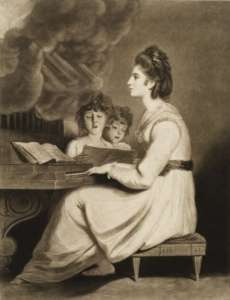
The St. Cecilia Society established one of the earliest traditions of musical patronage. St. Cecilia is the patron saint of music. In November 1766, prestigious local gentlemen, in Charleston, South Carolina, created the first private musical society in America.
The Cecilia Club was another late-19th-century Waterville musical group. It is described in Edwards’ history and the description is plagiarized in Whittemore’s, listing officers, conductors and pianists.
(Your writer found on-line references to the St. Cecelia Society, organized in 1766 in Charleston, South Carolina, named after the patron saint of music and described in Wikipedia as “the earliest known private subscription concert organization in North America”; and New York’s Cecilia Chorus, founded in 1906. The latter was a women’s group until 1965; it is now co-ed. A Dec. 16, 2023, concert at Carnegie Hall will include Vaughn-Williams’ Dona Nobis Pacem and the world premiere of a piece by American composer Daron Hagen.
(Edwards described an Augusta Cecilia Club, organized in the early 1880s by Mrs. Pauline Myrick and active into the late 1920s. Little information is available, he wrote, because records have been lost.
(In the Aug. 17 issue of The Town Line, on p. 14, is a notice of Damariscotta’s St. Cecilia Chamber Choir auditions, as the group prepares for its December pre-Christmas concert. Information is available at ceceliachoir.org.)
Waterville’s Cecilia Club was organized Oct. 15, 1896, through the “persistent labors of Mrs. George F. Davies and Mrs. Frank B. Hubbard.” Initially 19 members, there were 80 by October 1897, when they sang in a festival in Bangor, and about that number in 1902.
Whittemore and Edwards wrote that Waterville’s Cecilia Club sang in Maine Music Festivals as well as locally, including during the centennial celebration. Both credited Fairfield members’ contributions.
The last sentence of this section of Whittemore’s history reads: “The Cecelia club holds high place in the esteem of the people [Edwards wrote “held a high place in the esteem of the people of the State] though perhaps it never will attain the popularity possessed by ‘The singing school kept at Col. Hayden’s’ in 1795.”
Your writer found no other reference to this singing school.
Among the several Haydens who were early residents of Winslow and Waterville, Whittemore and other contributors to his history gave the title of Colonel to the senior Charles Hayden. He was identified as an east-side (Winslow rather than Waterville) resident who was a school agent in 1798; moderator of a First Universalist Society meeting Nov. 17, 1831; and member of the building committee for the west-side church that meeting attendees voted to build.
(This 1832 church at the intersection of Elm and Silver streets has been on the National Register of Historic Places since 1978. See the June 24, 2021, issue of The Town Line)
An on-line genealogy lists a Charles Hayden, born in Massachusetts in 1767, who came to Winslow with his parents in (according to Kingsbury) 1789. Charles’ father, Josiah Hayden, was a Revolutionary veteran, active in town affairs into the early 1800s. His mother was Silence Hayward or Howard Hayden; Waterville’s Silence Howard Hayden DAR (Daughters of the American Revolution) chapter was organized Jan. 3, 1898.
Dedication to R.B. Hall
According to the Maine An Encyclopedia website, on Aug. 14, 1936, Waterville officials held a tribute to R. B. Hall during which a Memorial Band Stand was dedicated; and on May 11, 1981, Governor Joseph Brennan signed a bill making the last Saturday in June R. B. Hall Day.
The bandstand was in what is now Veterans Memorial Park, at the intersection of Park and Elm streets. Your writer was unable to find it.
An on-line program for Waterville’s June 29, 2018, observance of R. B. Hall Day at the Opera House lists performances by town and state bands from 9 a.m. to 6 p.m., including the R. B. Hall Memorial Band and the Hallowell Community Band playing together for half an hour and massed bands for another half-hour.
Governor Janet Mills proclaimed June 24, 2023, as R. B. Hall Day. On-line sites note celebrations in Richmond and Rockland.
Main sources:
Edwards, George Thornton, Music and musicians of Maine: being a history of the progress of music in the territory which has come to be known as the State of Maine, from 1604 to 1928 (1970 reprint).
Kingsbury, Henry D., ed., Illustrated History of Kennebec County Maine 1625-1892 (1892).
Whittemore, Rev. Edwin Carey, Centennial History of Waterville 1802-1902 (1902).
Wiggin, Frances Turgeon, Maine Composers and Their Music, 1959.
Websites, miscellaneous.
Responsible journalism is hard work!
It is also expensive!
If you enjoy reading The Town Line and the good news we bring you each week, would you consider a donation to help us continue the work we’re doing?
The Town Line is a 501(c)(3) nonprofit private foundation, and all donations are tax deductible under the Internal Revenue Service code.
To help, please visit our online donation page or mail a check payable to The Town Line, PO Box 89, South China, ME 04358. Your contribution is appreciated!


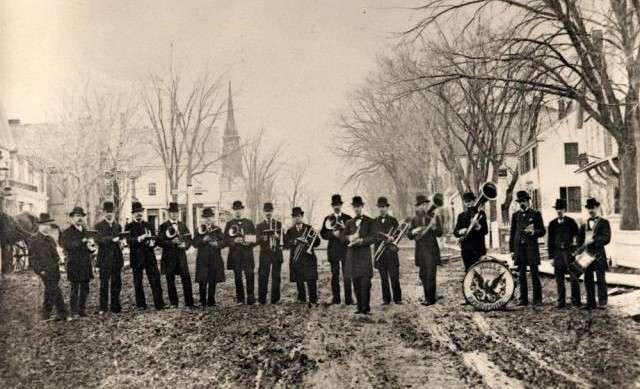
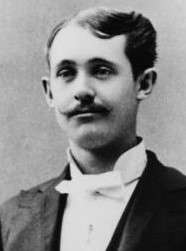
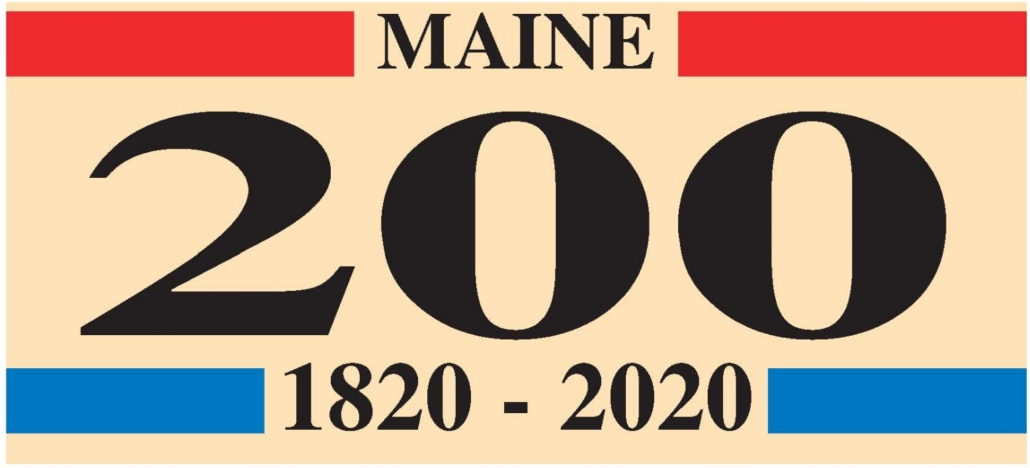

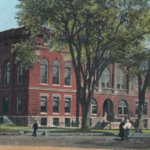
Leave a Reply
Want to join the discussion?Feel free to contribute!